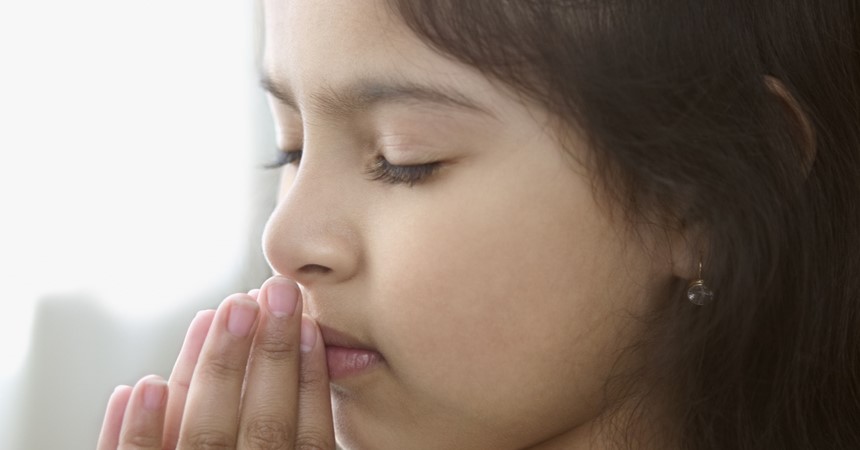On this Friday morning the guest is greeted politely by the class, much to the pleasure of the teacher. All eyes are on the guest who invites the group to play a game of statues. In silence and stillness, the children adopt the pose of someone playing tennis, someone vacuuming a floor and then someone waving happily.
Each time the group strikes a pose, four little statues are selected and the rest of the children admire and applaud the creativity of their fellow artists. Next, children are asked to adopt the pose of someone praying. They do this without hesitation. This final pose becomes the focus of a discussion about how people pray. Some close their eyes or join their hands, some kneel and others bow down.
The weekly visitor is a trained volunteer who has been presenting religious education lessons for ten years in government schools. Initially he was screened and selected by his church to present lessons to the children of that denomination attending the local government schools. He was surprised to learn that over 90 per cent of families at the school were happy for their children to receive lessons from the individual and program authorised by their local church.
Findings of the independent review indicate that the majority of families consider it important to educate their children in their faith. 92 per cent of primary and 81 per cent of secondary schools surveyed ran SRE classes in 2015. (2015 Review of SRE and SEE in NSW Government schools, p 25) Buddhist, Baha’i, Christian, Hindu, Jewish and Muslim families all exercise their right under the Education Act to have their children attend weekly lessons in Special Religious Education (SRE). Since 2010 those families who indicate ‘no religion’ have also been offered classes in Special Ethics Education (SEE).
Values and ethics have long been the foundation of education in civilised society. Children are introduced to these in the home and schooled in them until the age of 18. NSW has had a proud tradition of values education embedded in every subject as well as in the principles, policies and procedures employed to manage, develop and foster the educational endeavour of every school.
In this value-filled learning environment, religious education is delivered appropriately to those children whose families hold a particular worldview. This is the extent to which our multi-cultural, multi-faith pluralist society has advanced. Let Anglicans, Baptists, Catholics – in fact, all Christians − teach children each week who identify with these denominations alongside Buddhists, Hindus, Jews and Muslims who educate their children in their faith tradition.
This level of freedom is the envy of many countries and is an aspect of Australian life we would do well to preserve. The NSW education system reflects the broader societal attitudes of acceptance and harmony built on the principle of freedom for all. In the words of a recent Education Department media release “The review acknowledges that the policy and legal framework supporting freedom of religion and conscience in NSW schools since 1848 is maintained.”
This is special indeed.



























































































